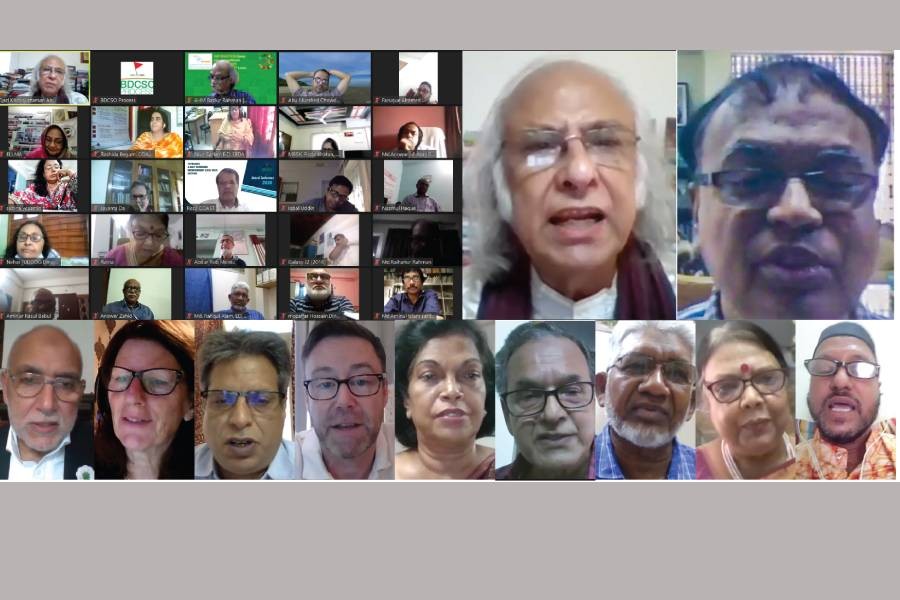BDCSO Process, a process forum of around 700 local CSOs/NGOs, has started its second annual conference virtually.
The title of the first-day session was ‘Building civil societies, complementarity, and leadership of local actors’, says a media release.
Dr. Qazi Kholiquzzaman Ahmad, Chairman of the Palli Karma Sahayak Foundation (PKSF), chaired the session while Rashadul Islam, Director General of NGO Affairs Bureau, was present as special guest.
Rezaul Karim Chowdhury, National Coordinator of the forum, moderated the programme.
Around 300 local and international participants took part the first session of the three-day conference with translation facilities, said the release.
There were also four international speakers-- Professor Thea Hilhorst, President, International Humanitarian Study Association, Netherlands; Dr. Hany El Banna, President, The Humanitarian Forum, UK; Mr. Sudanshu S Singh, International Coordinator, Alliance for Empowering Partnership and Dr. James Munn from Norwegian Refugee Council.
The Bangladeshi guests of the event were-- Ms. Rokeya Kabir, BNPS; Mr. Joyanta Adhikari, ADAB; Mr. Abdul Matin, Sojag; Mr. Abdul Latif Khan from NAHAB; Mr. AHM Bazlur Rahman from BNNRC and Mr. Sharif Jamil of BAPA.
Several other grass-root leaders have also spoken at the session, among them-- Mr. Faruque from Moymonsingh, Mr. Rafiq from Hatiya, Mr. Anwar Zahid from Barisal, Mr. Lalit Chakma from Rangamati, Mr. Mohon Mondol from Sathkira, Ms. Masuda Faruque Ratna from Norsingdi, Ms. Nasrin Parvin from Rajshahi.
Dr. Qazi Kholiquzzaman Ahmad said that local civil society will only effective if they consider the human dignity of the affected population, he urged local NGO/CSOs to turn around with their resource mobilisation.
Director-General Mr. Rashadul said that he supports the discourse on localisation and he will work for the dignity of the local NGO/ CSOs.
Professor Thea Hilhorst said that accountability and transparency are fundamental to reach the affected population. She also said that international agencies have to abandon their colonial characters.
Dr. Hanny El Banna said that it is the local people and local NGO/CSOs always the first responder.
Mr. Sudanshu Singh said that INGOs nowadays especially in India and also in Nepal turning themselves as a local organisation or forming their local organisation in our countries, which is simply to grab local aid market, they and including UN agencies competing with local NGO/CSOs is against the international commitments.
Mr. Rokeya Kabir said that during our liberation war, it is the local people who have organised the fighting and survive the entire country, but now it is the foreign aid suppressing nowadays very local spirit of self-help and social capital.
Mr. Joynata Adhikari said that we should limit UN agencies and INGOs only on technical assistance and monitoring, they must use Bangla language, not English in their communication.
Mr. Abdul Latif Khan of NAHAB demanded full transparency from UN agencies and INGOs on their of fundraising related to the recent flood, he also urged the government to take full accountability of Rohingya aid being channeled through UN agencies, which is around 80 per cent of the total Rohingya aid.
Dr. James Munn said that he and his organisation believes in equality in partnership, not in sub-contracting.
Mr. Sharif Jamil said Bangladeshi NGO/CSO has a proven track record of mass mobilisation with its own resource mobilisation, especially to protect the environment.


